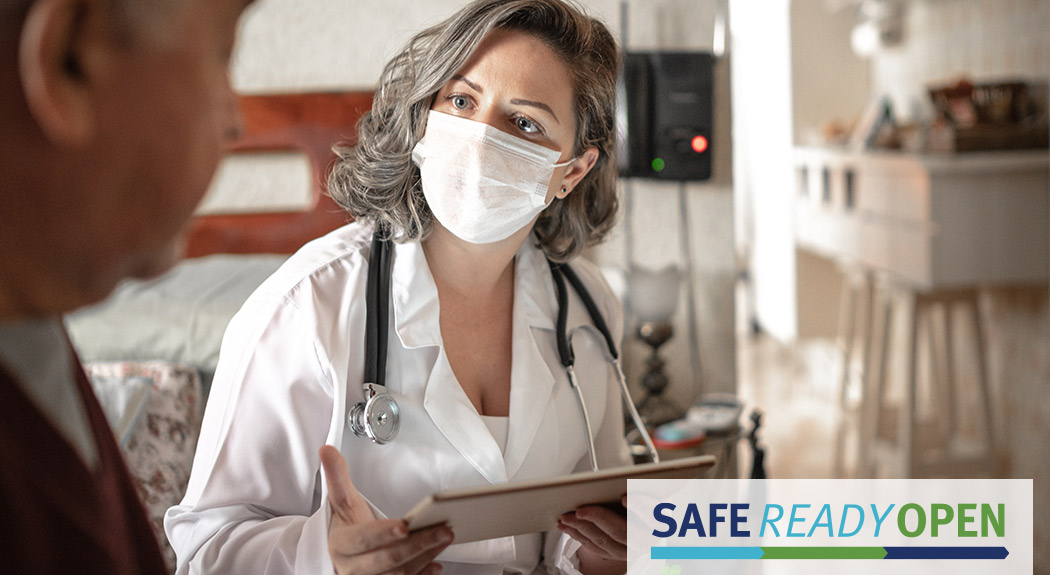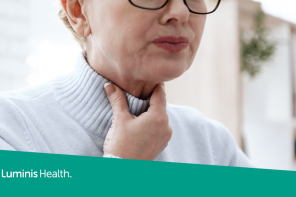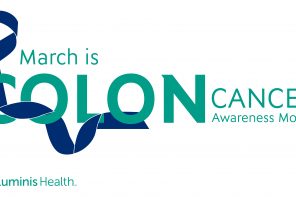The coronavirus (COVID-19) pandemic has affected all of us in ways we never saw coming. And, we are now beginning to see the light at the end of the tunnel – though we will feel the pandemic’s impact in our country, and around the world, for quite some time.
We never stopped taking care of those with cancer. But, we did have to change how we delivered care as we prepared for a possible surge of COVID-19 patients. Now, we are beginning to see the number of COVID-19 hospitalizations decreasing statewide.
We know many people have questions about whether it’s safe to go to the hospital right now. Here’s what we want you to know.
- Do not delay your medical care because you are afraid to come to the hospital. I want to stress that this is not a good idea and can put your health at risk. Please know that we have safety procedures in place to protect you. Some of these include protected check-in and check-out practices, face masks for everyone on our campus, daily screenings for all employees and patients, and COVID-19 testing for all patients who are scheduled to undergo surgery.
- We can safely serve the needs of our community. Especially when it comes to cancer prevention and delivering cancer care. We changed how we manage the processes around cancer screening. This includes cancer screening services such as colonoscopies, mammograms, skin exams, and PAP smears or wellness exams. For physical distancing, we offer same-day appointments with waiting room limits. We also screen all patients for COVID-19 before procedures such as colonoscopies. We are open to care for you, with your health and safety as our top priority.
- You have more options than ever to “see” your doctor. Telehealth visits with your doctor are just like a FaceTime call, but better. Though the pandemic forced us to learn to communicate with our patients in new ways, I can tell you that telehealth is here to stay. It has given us a convenient method to meet with you and discuss your concerns. However, we will still happily meet with patients face-to-face. This is an important part of our personalized approach to care.
To all of our cancer survivors, we urge you to stay in contact with your doctor. That could include your medical oncologist, your primary care doctor, your nurse navigator or any member of your cancer care team. Keep regular appointments and let them know of any changes in your health. We are here for you.
We look forward to providing safe, effective and efficient care to all of our cancer patients now and into the future.
 Adam I. Riker, M.D., F.A.C.S., is chair of Oncology at Anne Arundel Medical Center’s DeCesaris Cancer Institute.
Adam I. Riker, M.D., F.A.C.S., is chair of Oncology at Anne Arundel Medical Center’s DeCesaris Cancer Institute. 



